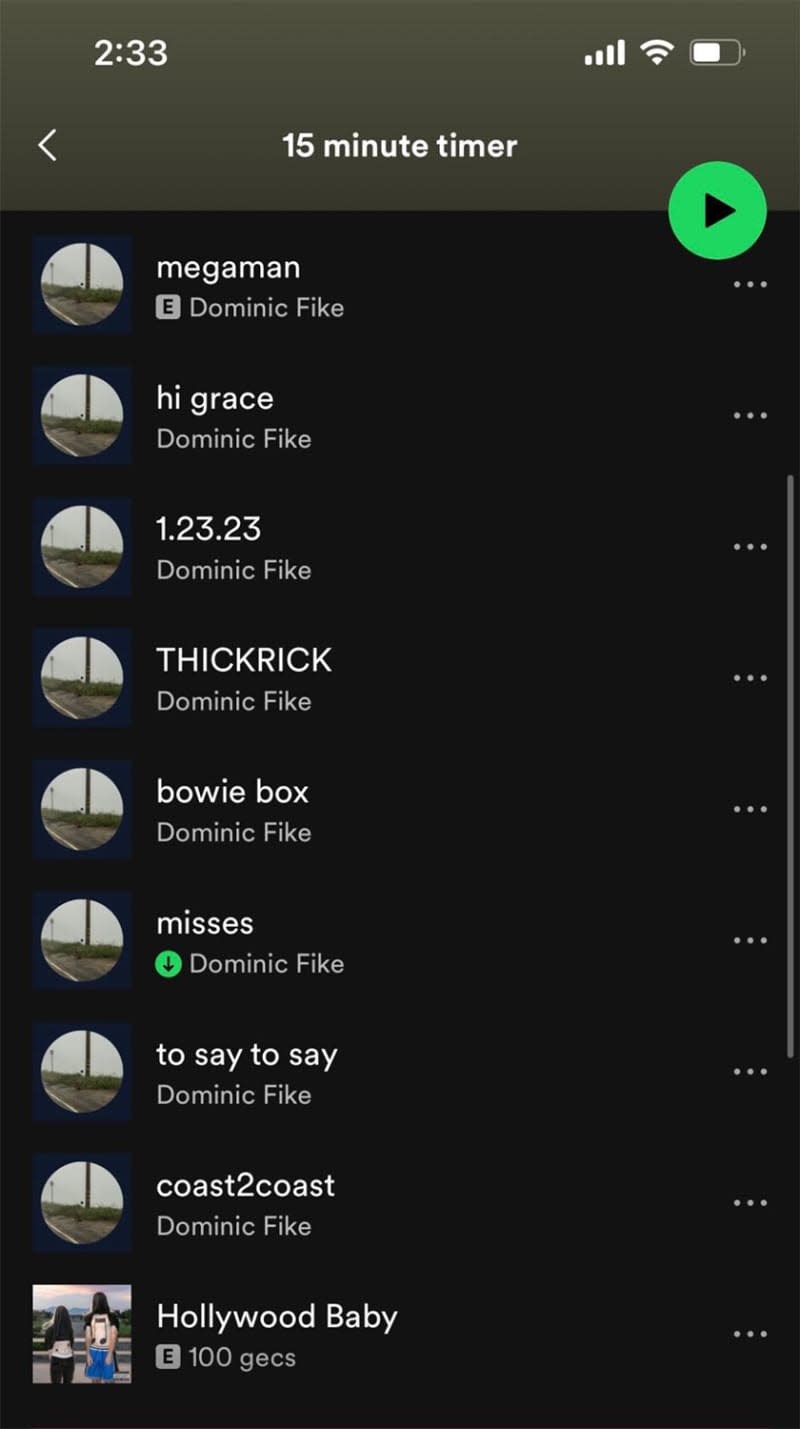I Tried the “Music Doubling” Method to Stay on Task (It’s Actually Brilliant)

I am a big fan of the timer app on my phone. I dabble in the Pomodoro Technique to power through some of my workday, and I use the “timer method” to get a bunch of cleaning done in a short burst. The thing is, if I’m really in the zone with whatever I’m doing I’ll often ignore the alarm when it goes off, setting it to loop again or turning it off altogether. Which, you might say, kind of defeats the purpose of using a timer at all! But recently I found out about the “magic timer” method and it’s been kind of a game-changer for me.
What Is the “Magic Timer” Method?
I learned about this trick via this Instagram Reel, where the creator explains how to do it. Simply create a playlist with whatever song you’re loving right now on repeat, and make it last 15 minutes long. Then, crucially, make the final song something with a different sound, that’ll snap you out of the zone.
The creator says it’s an especially great tool for people with ADHD. In the video, they say, “People with ADHD, you’ve got pizza rolls in the oven, you’ve got water boiling on the stove, you’ve gotta be somewhere in 15 minutes, but you want to do something first?”
“Don’t set a timer; that’s not how your brain works. You’re going to ignore it and you know it.” Their version of the 15-minute timer consists of “Linger” by The Cranberries and then “It’s Not Unusual” by Tom Jones, but, they say, you can use “some other freaky song that’s going to pull you right out of flow state.” As long as you follow the formula, it’ll work. “Trust me,” they say. “You’re not going to miss this timer.”
How the “Magic Timer” Method Worked for Me
When my colleague, the wonderful Megan Baker Detloff, first shared this Instagram Reel with me, she described it as “music doubling” — as in, body doubling (where you work alongside another person to stay on task), but using a playlist. I love this personification of your favorite song as a person, so I decided to put this method to the test.
Despite the fact that I love listening to one song on repeat almost too much (let’s just say I never post my Spotify Wrapped recap), I decided to make my timer using songs from the same album, and therefore with a similar sound, but not just one song. It felt fitting to use Dominic Fike’s new album “14 Minutes,” because then all I had to do was add an interruption song at the end. I picked “Hollywood Baby” by 100 gecs because that song will snap you out of anything.

I had almost exactly 15 minutes before I had to run out the door (sure, Google Maps would say I had 10, but I know better) and a relatively messy kitchen. I put on the playlist and got to work washing pans and wiping down counters, and I was tying up the trash when 100 gecs started blaring. Just like that, I was out of the cleaning zone and reminded that I had to get my shoes on and go.
Will I be using this playlist again? Absolutely. My only tip is to pick a final song that you don’t actually like very much, since I was tempted to listen to the entirety of the last song, which actually put me slightly over 15 minutes. I’ve already made another version of this playlist using Tierra Whack’s album of one-minute songs (so convenient), although I anticipate making others as new favorite songs come on my radar.
Sometimes, a musical timer just doesn’t make sense. For instance, I’m not probably going to use it while I’m writing or editing, because the lyrics are distracting (although I could try an instrumental version). And in some cases, I actually don’t mind working through the timer I’ve set for myself. But there are plenty of exceptions, like when I’m unloading my dishwasher in the 15 minutes before a meeting and want to make sure I’m not late, or when I really have to leave in 15 minutes, despite the my erroneous belief that I can shave several minutes off every Google Maps estimate using sheer willpower.
In those times, I see myself using the music doubling method on a regular basis. It’s a fun, gentle way to train your brain to stay on task, and move on to the next thing when it’s time.

